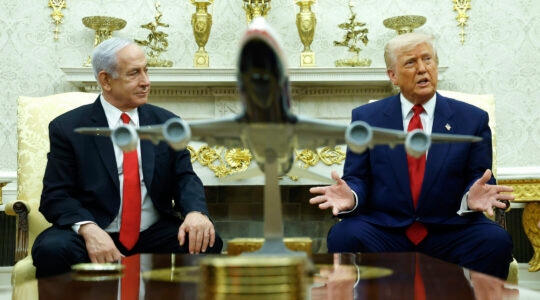WASHINGTON (JTA) — The Trump administration added six individuals and seven businesses to its Hezbollah sanctions list, saying it is determined to cut off from financial markets what it called “Iran’s primary proxy.”
The list released Friday by the U.S. Treasury names a network of businessmen and businesses that fund the Lebanese terrorist organization. All seven of the companies are owned by Ali Muhammad Qansu, who is also designated as an individual. The companies — one in Lebanon and six in West Africa, where there are large Lebanese communities — deal in fishing.
Qansu and his businesses are tied to the network of a businessman previously targeted for sanctions, Adham Tabaja, the Treasury statement said. Tabaja has direct ties to Hezbollah.
Of the six businessmen, four are based in Lebanon and two are in Iraq.
“Hezbollah is a terrorist organization responsible for the death of hundreds of Americans. It is also Iran’s primary proxy used to undermine legitimate Arab governments across the Middle East,” said Treasury Secretary Steven Mnuchin. “The Administration is determined to expose and disrupt Hezbollah’s networks, including those across the Middle East and West Africa, used to fund their illicit operations. The Treasury Department will continue to sever Hezbollah from the international financial system, and we will be relentless in identifying, exposing, and dismantling Hezbollah’s financial support networks globally.”
The Obama administration intensified sanctions on Hezbollah in the wake of its 2015 nuclear deal with Iran, in part to assuage Israeli concerns about the deal. Israel’s government was concerned that the deal, which swapped sanctions relief for a nuclear program rollback, would free up Iranian money to fund Hezbollah, Iran’s ally in Lebanon, which launched a war against Israel in 2006. The Trump administration has accelerated the application of those sanctions.
The sanctions not only ban U.S. businesses from dealing with targets, they ban third parties who deal with the targets from trade with the United States. Because of the prevalence of the dollar in overseas markets, the effect is to severely curtail the ability of a business to conduct trade.
JTA has documented Jewish history in real-time for over a century. Keep our journalism strong by joining us in supporting independent, award-winning reporting.





